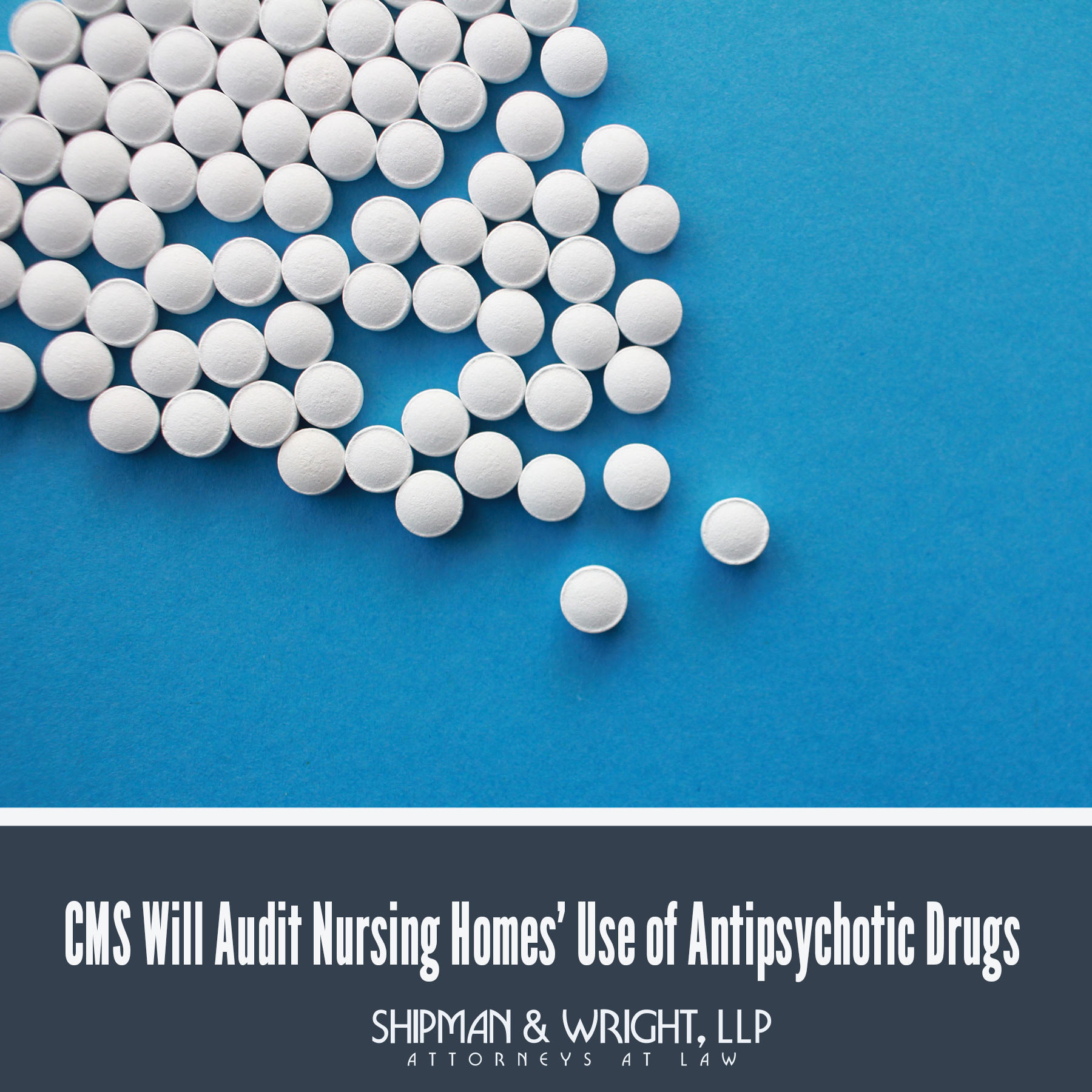Written By Attorney Mysty Blagg
CMS Will Audit Nursing Homes’ Use of Antipsychotic Drugs and Increase Transparency of Citations Under Dispute
The Centers for Medicare and Medicaid Services (“CMS”) announced in QSO-23-05-NH that it will begin conducting targeted off-site audits of Minimum Data Set (“MDS”) coding for residents with a schizophrenia diagnosis. This audit is in response to CMS’s concern that nursing homes are erroneously coding residents as having schizophrenia as explained by CMS, erroneous MDS coding that masks a nursing home’s true rate of antipsychotic medication use can lead to poor care and unnecessary use of antipsychotic medications.

The Basis for the Audit
CMS identified several issues related to inaccurate MDS coding of residents with a diagnosis of schizophrenia during pilot audits conducted earlier this year:
- An absence of comprehensive psychiatric evaluations and behavior documentation.
- Only sporadic behaviors were noted in the resident’s medical records.
- Sporadic behaviors that were related to dementia instead of schizophrenia.
Facilities that have been selected for an audit will receive a letter explaining the purpose of the audit, its process for conducting the audit, and instructions for providing additional documentation.
CMS’s Five-Star Quality Rating System which is displayed on the CMS Nursing Home Compare website, is comprised of three rating domains: health inspections, staffing, and quality measures. The percentage of long-stay residents receiving antipsychotic drugs is one of the quality measures (“QM”) that CMS uses to calculate a facility’s star rating. Residents with a diagnosis of schizophrenia, Huntington’s disease, or Tourette’s are not included the QM percentage. Therefore, exclusion of residents from the QM data based on an inaccurate schizophrenia diagnosis will improperly skew the QM percentage.
Adjustment to Quality Measure Star Rating for Inaccurate Coding
CMS plans to adjust the quality measure star rating if it concludes that the facility is inaccurately coding its residents as having schizophrenia. Specifically, CMS will adjust the quality measure rating as follows:
- The overall QM and long stay QM ratings will be downgraded to one star for six months, dropping the facility’s overall star rating by one star.
- The short-stay QM rating will be suppressed for six months.
- The long-stay antipsychotic QM will be suppressed for twelve months.
Opportunity to Self-Report
CMS plans to offer nursing homes an opportunity to forego the audit by self-reporting this type of coding error and committing itself to correct the problem. For facilities that self-report the miscoding, CMS plans to consider lesser actions toward the facility’s star ratings.
CMS to Begin Posting Nursing Home Citations Under Informal Dispute Resolution (“IDR”) and Independent Informal Dispute Resolution (“IIDR”)
Historically, nursing home deficiency citations that were still going through the IDR or IIDR process were not posted to the Nursing Home Care Compare Website. To promote transparency, CMS will post deficiency citations regardless of whether they are under dispute, but the website will indicate that a citation is under dispute. If the citation is overturned, it will be removed from the website. If the severity of the citation is reduced, then the citation on the website will be updated to reflect the reduced severity level. The facility’s star rating will remain unaffected by a deficiency citation while the facility is using IDR or IIDR to challenge the citations.
Contact Shipman and Wright, LLP Attorney Mysty Blagg for information about and assistance with responding to CMS audits.







